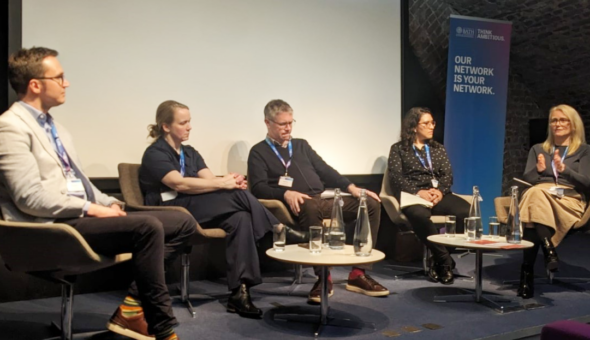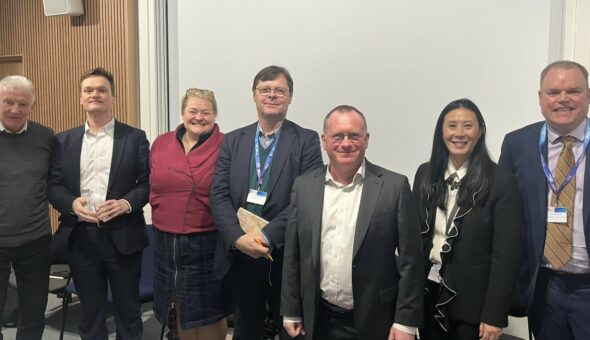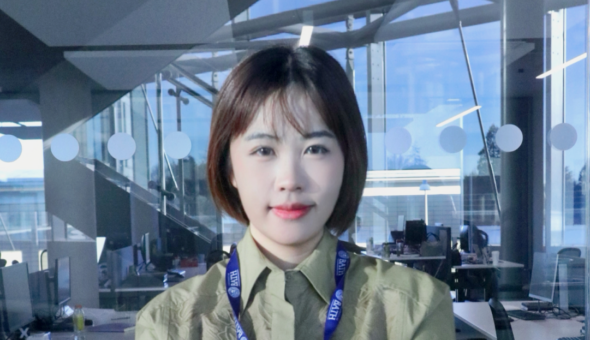Recent graduate Dr Alisha Tuladhar reflects on her experiences as a PhD student at the University of Bath's School of Management, sharing her tips for getting through a PhD as well as explaining her goals for her research.
What is your PhD about?
My PhD is about exploring how start-ups operationalise circular economy (CE) business models within their businesses. The title of my thesis is ‘Circular Economy and Start-ups: Business Models, Collaboration, and Impact’. The title reflects the three papers in my thesis: the first one being a deep dive into the history of circular economy and circular economy business model. The second paper is about collaboration - collaboration between start-ups and incumbents to achieve certain circular economy outcomes. Using the framework developed here, I hope that companies can become aware of the various ways in which they can collaborate with other firms to bring circular economy goals to the forefront. Finally in the third paper, I explore how impact is perceived by start-ups. By impact, I mean the difference that a business has on society and the planet above and beyond what would have happened without the existence of this business. In this paper, I showcase the different facets of impact and how start-ups' perception of impact varies as they progress into different stages of a start-up.
Why did you want to do a PhD,and why on this particular topic?
I wanted to do a PhD in circular economy because I saw its potential to solve some pressing environmental challenges that we currently face. My decision to do on a PhD came about when I was doing an MSc in Innovation and Technology Management. I chose circular economy as my dissertation topic then which gave me a glimpse into the world of research, how it is done, what the potential opportunity and gaps were in the CE literature and what more could be done in this realm. After having a fruitful three months research experience, I then decided to continue in academia and start a PhD in this same topic.
What impact do you hope your PhD will have?
I hope my PhD expands our knowledge base of circular economy and circular economy Business Models. While the academic community will benefit from the various theories discussed in my thesis, I also had the practitioner community in mind while writing my thesis. This means that members of the business community who are interested in achieving certain circular economy outcomes and impact can use the frameworks presented in my thesis to collaborate and understand impact implications better.
What have you found the most difficult about doing your PhD? And how did you manage this difficulty?
I personally found processing large amounts of qualitative data quite challenging. It’s a bit like finding a gem in a haystack. Processing large amounts of qualitative data takes time, focus, effort, and analytical skills. You need to make sense of the data, and to pick out the nuances, the novelty from the data and to present it in an interesting manner in the Findings section. This was probably the part that I found the most challenging and rewarding at the same time.
What did you enjoy the most?
A big part of my PhD time was spent on data collection, which I enjoyed thoroughly! As a qualitative researcher, data for me meant interviews, company visits, talk programmes, and collecting secondary/archival data about the cases in my study. Although it was a lot of work, I found the conversations I had with start-up founders really insightful. Speaking to various companies and visiting their premises, I learnt about their business models, their business ethos and had a glimpse of their world view, which I found really exciting. Circular start-ups are on the rise with really ambitious vision and unique solutions. This is a space worth looking at.
What skills have you learned that you will take into your future career?
Plenty, actually! Reading and writing skills are obviously top on the list, followed by presentation and networking skills. During my PhD I did lots of teaching, and with this experience I feel more confident and comfortable at presenting to large audiences, engaging in a debate, facilitating discussions and more importantly, am able to effectively communicate complex ideas in a succinct and simple manner.
Also, a PhD journey is never complete without attending and presenting at conferences. It’s not enough to merely listen and present at conferences, networking – meeting new people with similar interests, and expanding your professional network are key. I too had the opportunity to attend several national and international conferences where I was able to network with key academics, fellow PhDs and conversate with brilliant minds.
Do you have any advice for anyone considering a PhD in the University of Bath?
Yes, I have a few tips actually.
- Have an end in mind: I would suggest any PhD to have an end in mind during their PhD journey. Deciding from the onset whether you’re going to do follow a PhD by publication format or a traditional thesis is always worth thinking about and planning for. This allows you to plan and write your research effectively.
- Make the most of the available resources, learning and networking opportunities at Bath: There are plenty of events and talk programmes for the PhD community such as reading groups, department seminars, workshops by the doctoral college and many more. I am a big believer in making the most of what’s on offer. Often times PhD students are so narrowly focussed on their own research that they miss out on these valuable opportunities to form professional connections and broaden your knowledge base. My advice for future PhD students would be to broaden your mind, network and skillsets and make the most of what’s on offer.
- Have a close set of reliable PhD friends in your network: Doing a PhD can often involve lonely, long hours in front of the computer, multiple visits to the library, and lots of thinking (and walking!). It’s very different to doing a Master’s or a Bachelor's degree where there is a standard timetable programme set. PhD is quite an open ended and messy journey (in my view).So there are bound to be ups and downs. Having a strong support network helped me navigate my four years. I often found it easier to speak about PhD woes with fellow PhD candidates compared to those not doing a PhD. I would recommend having a good set of go-to PhD friends within your tight circle. My four years have surely been much easier and fun, thanks to my PhD friends!
Responses




It was so exciting to see you succeed and getting your PhD, but also to see you grow as a person. Liked your thoughts.